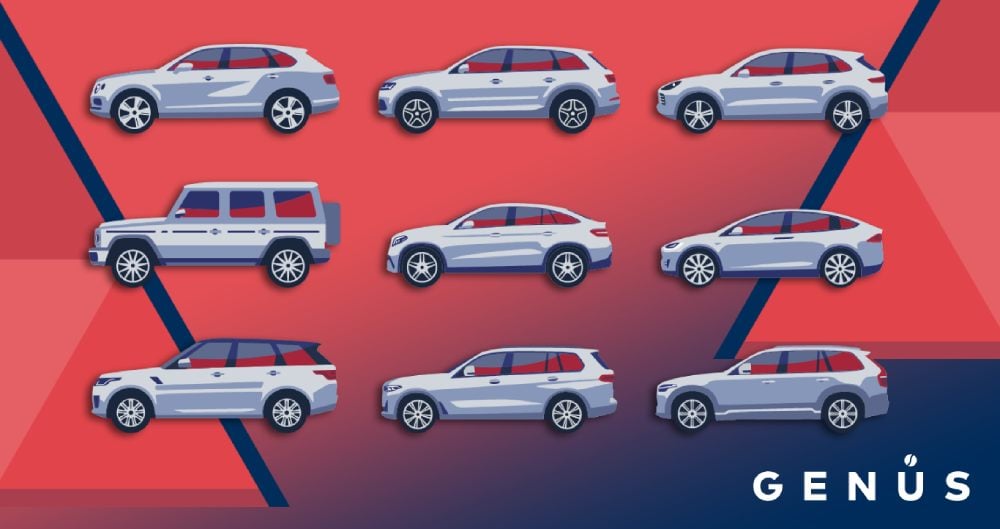
Sharing vehicles across your business can make sense, but only if you know the rules. Pool cars offer flexibility and potential business advantages, provided they’re managed the right way.
What is a pool car?
A pool car is a company vehicle that’s available for occasional use by more than one employee when they need to undertake work-related journeys. This vehicle may be, for example, a van used to deliver goods to customers.
What is the criteria of a pool car?
If an employee needs a vehicle to regularly travel, they would usually be provided with a company car, not a pool car.
HMRC’s stance is to prevent employees from using pool cars as their primary company vehicles to evade tax on a company car. To be considered a pool car, it must meet all the following criteria:
- Be made available to, and actually used by, more than one employee.
- Be made available to each employee by reason of their employment.
- Not ordinarily be used by an employee to the exclusion of the others.
- Any private use by an employee is merely incidental to their business use of it.
- Not normally be kept overnight at or in the vicinity of an employee’s home.
Company car vs pool car
|
Company car |
Pool car |
|
An employee can use it for business and private use |
Primarily for business use |
|
Can be kept at an employee's premises |
Should not be kept at or near employee's premises |
|
Available for sole employee |
Must be shared with more than one employee |
A company car is provided by an employer for both business and private use.
An employee is essentially leasing the vehicle from their employer, so does not have to worry about any monthly payments or unexpected costs (insurance, maintenance, tax), plus some employers may offer a fuel benefit, which is generally cheaper for the employee. The employee is also free to use the car for private use and keep it at their premises.
The benefit-in-kind tax rate can be as low as 2% if opting for a zero-emission vehicle!
What is “incidental use”?
Incidental use is an element of private use which facilitates the business journey, for example, taking the car home the night before to facilitate an early start. It may also include nipping out for lunch on a work-related day trip.
Doing the school run or the weekly food shopping does not qualify for incidental use.
Keeping the vehicle at home overnight
HMRC denotes that for a pool car to be considered ‘not normally kept overnight’ at an employee’s premises, the number of such occasions cannot exceed 60% of the year (typically 219 out of 365 days).
However, where a car is kept at the employees’ homes on a higher number of occasions, although less than 60% of the year, HMRC deems it unlikely that all the home-to-work journeys would satisfy the ‘incidental use’ criteria.
Additionally, if the car is kept primarily at one employee’s home, HMRC may deem it unlikely to be available to, and used by, more than one employee.
What are the benefits of a pool car?
A pool car is not treated as a ‘perk’ of employment and therefore employees are not liable to a benefit-in-kind payment. Compared to company cars though, pool vehicles potentially offer reduced overall costs of insurance, leasing and general maintenance.
A 100% first year capital allowance is available if the pool car is electric or a car with zero CO2 emissions. Otherwise, the writing down allowance is available each year at either 6% or 18% of the value of the vehicle. Vans qualify for 100% annual investment allowance.
Taxing journeys made simple
Pool cars are one of many business decisions owners must consider when making efficient operational choices. Company vehicles and pool cars have myriad benefits and drawbacks; the best option will depend on your business's circumstances. Contact Shorts' Genus team today to learn which vehicle type best suits your workplace's needs.

Alicia Williams
I am the Director of the Genus team at Shorts, a chartered certified accountant and Xero specialist. I specialise in cloud-based accounting solutions, particularly Xero and add-on software, helping clients streamline processes and improve efficiency. As a Client FD, I work closely with businesses to give them a clear understanding of their current position and support their long-term planning and growth.
View my articles